Toyota & Huawei's Joint Creation: bZ7 Debuted at Shanghai Auto Show
 MichaelApr 23, 2025, 03:13 PM
MichaelApr 23, 2025, 03:13 PM
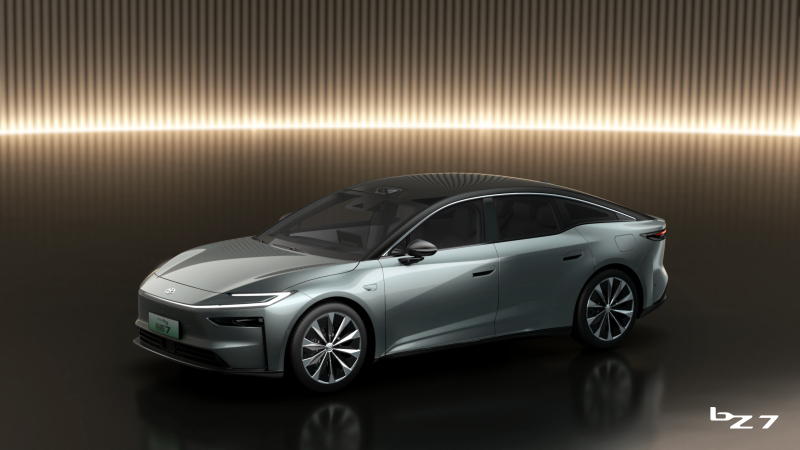
【PCauto】 During the 2025 Shanghai Auto Show, Toyota made the global debut of its first HarmonyOS-equipped sedan, the bZ7. The launch of the bZ7 marks a fundamental transformation in Toyota's R&D approach in China.
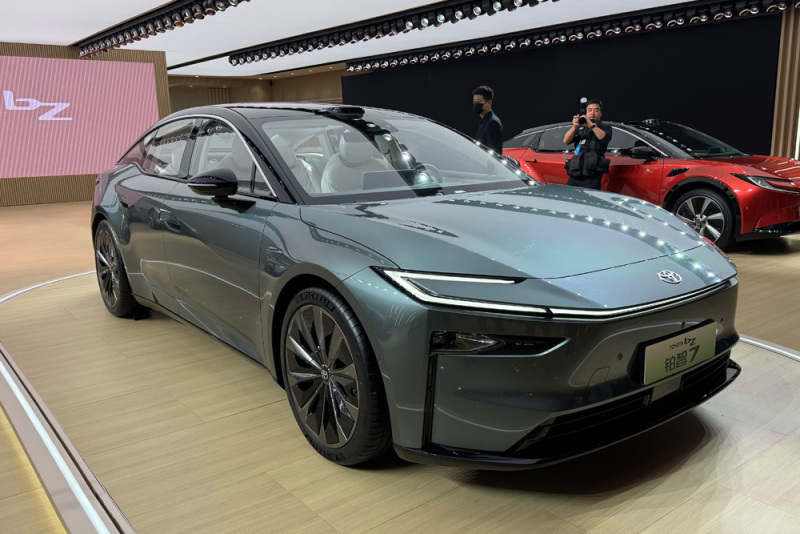
The bZ7 firstly realizes Toyota's R&D pattern, where products are defined by its Chinese team while utilizing global resources. From consumer needs research and product definition to technology selection, the Chinese team holds absolute decision-making authority.
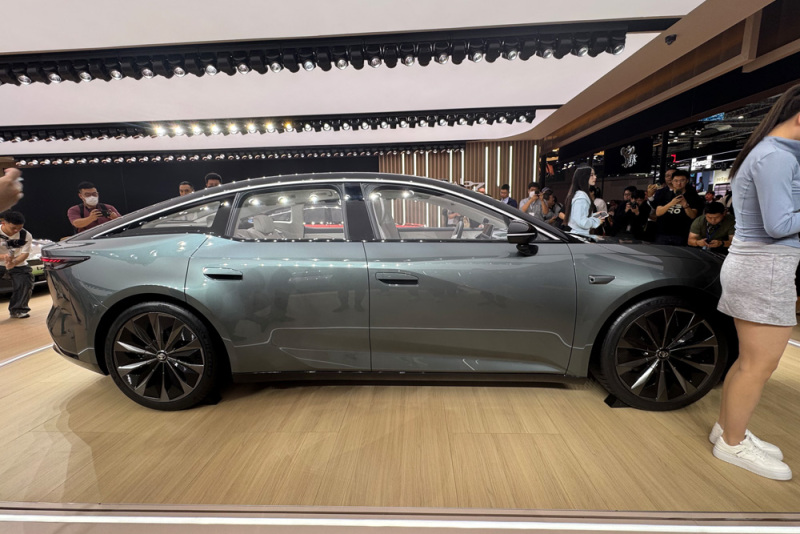
Let's start with the detailed introduction of bZ7. As a product of Toyota's deep collaboration with Huawei, the bZ7's interior space is its greatest highlight. With a wheelbase approaching 3.1 meters and overall length exceeding 5.2 meters, the bZ7 delivers spacious room, offering abundant legroom for both front and rear passengers.
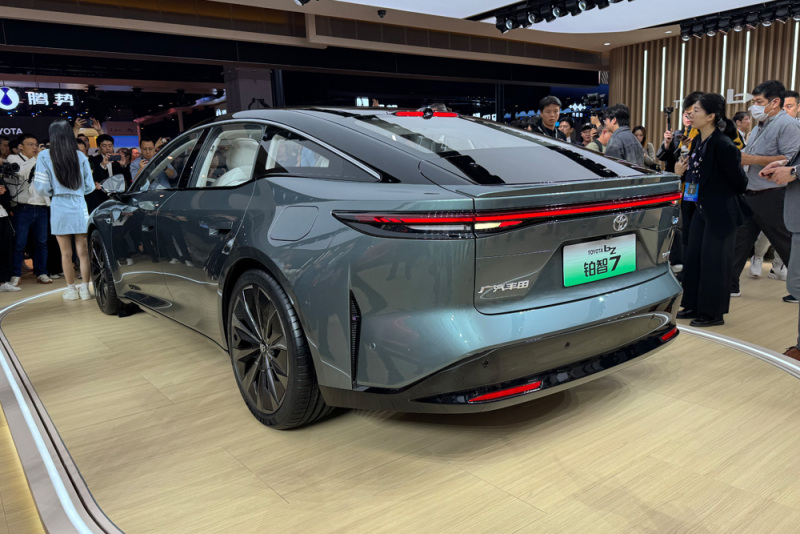
The rear seats feature ergonomic design with power-adjustable backrests, complemented by a panoramic glass roof and dual-zone climate control to deliver a luxury executive-class riding experience. The 500L trunk capacity with split-folding rear seats meet the needs of both business trips and family travels.
The vehicle employs double-pane acoustic glass and sound-optimized engineering, paired with a HUAWEI SOUND audio system to create a serene mobile soundscape. Eco-friendly genuine leather upholstery comes standard with heating/ventilation functions.
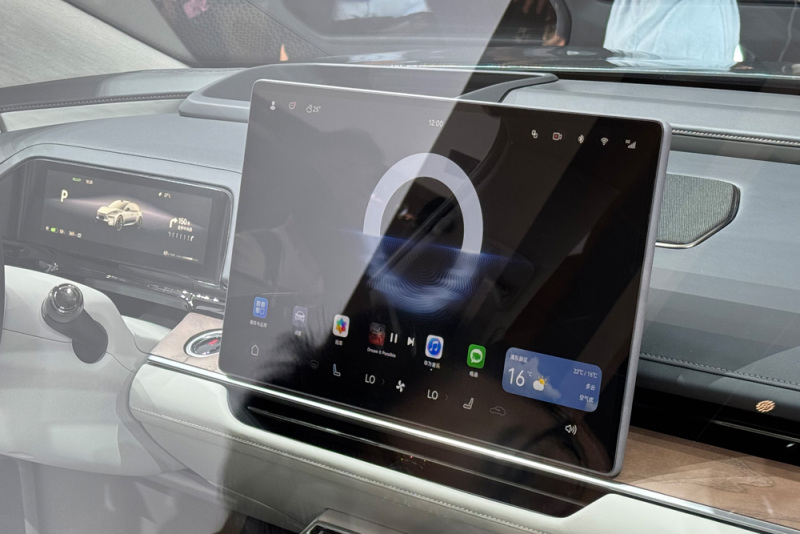
Previously, Toyota and Huawei had already collaborated in the field of in-cabin technology. The ninth-generation Toyota Camry, launched in March 2024, is equipped with a Huawei-developed infotainment system featuring a Qualcomm Snapdragon 8155 chip and 12GB+128GB memory configuration, significantly improving system smoothness compared to previous models.
For the bZ7, the interior screen configuration has been upgraded to a 12.3-inch embedded full LCD instrument cluster and a 15.6-inch floating central control display.
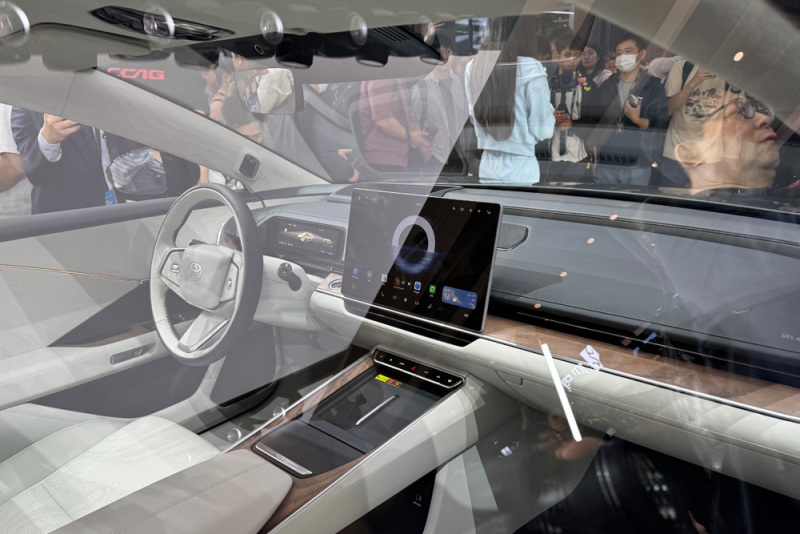
Moreover, the collaboration between Toyota and Huawei on the bZ7 extends beyond just the infotainment system to encompass the entire cockpit design. The Huawei HarmonyOS Smart Cockpit is renowned for its exceptional system fluidity, abundant ecosystem applications, and convenient interactive experience.
This cockpit enables comprehensive integration of vehicle controls and infotainment functions. For instance, traditionally complex operations like adjusting air conditioning or seat heating—previously hide in multi-layered menus—can now be executed with one-touch simplicity through a clear interface. Additionally, the system supports continuous OTA updates, ensuring ongoing expansion of its application ecosystem and long-term functional leadership.
The HarmonyOS Smart Cockpit also achieves smooth connectivity with the driver's Huawei smartphones, smartwatches, and other devices, enabling information sharing and coordinated operations. This significantly enhances driving convenience and intelligent interaction, addressing the shortcomings of traditional automakers in smart cockpit development.

In terms of intelligent driving assistance, the bZ7's LiDAR hardware has more precise perception of surrounding environmental data. Whether identifying suddenly appearing pedestrians and non-motorized vehicles on complex urban roads, or accurately judging the distance and speed changes of preceding vehicles on highways, the LiDAR system plays a crucial role.
Combined with Huawei's sensor fusion solution, the bZ7 can rapidly and accurately analyze various road conditions and driving scenarios, quickly making corresponding driving assistance decisions to provide drivers with more comprehensive and reliable safety protection.
From Toyota's perspective, collaborating with Huawei holds significant strategic importance. As the world's largest automotive market, China sees growing consumer demand for vehicle intelligence.
The rapid development of Chinese domestic automakers in intelligent technologies has caused substantial sales challenges for foreign brands like Toyota. Through this partnership, Toyota can quickly acquire mature smart cockpit and autonomous driving technologies, shorten R&D cycles, reduce development costs, and more efficiently launch intelligent products tailored to Chinese consumers' needs.
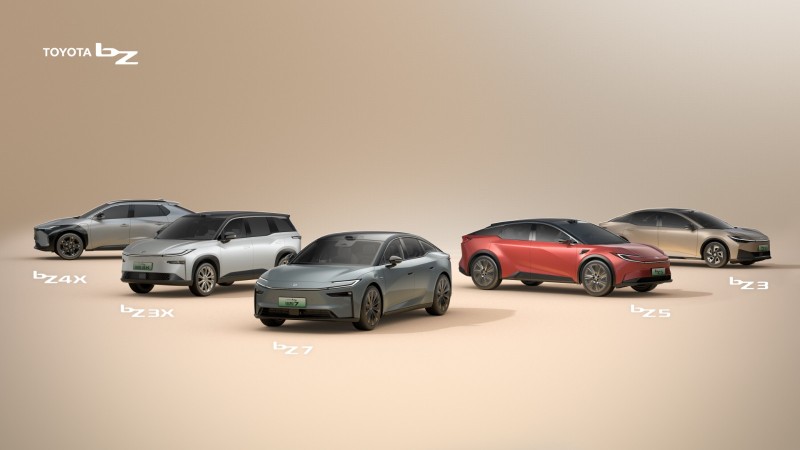
Toyota has always shown exceptional foresight in corporate strategy. A prime example is its decision made in 1997 to develop THS (Toyota Hybrid System), which ultimately enabled it to surpass Volkswagen decades later and become the world's top-selling automaker.
Judging by Toyota's approach to vehicle intelligence, it's evident that localized smart cockpit systems will become a major industry trend in the future.
If any infringement occurs, please contact us for deletion
Trending News
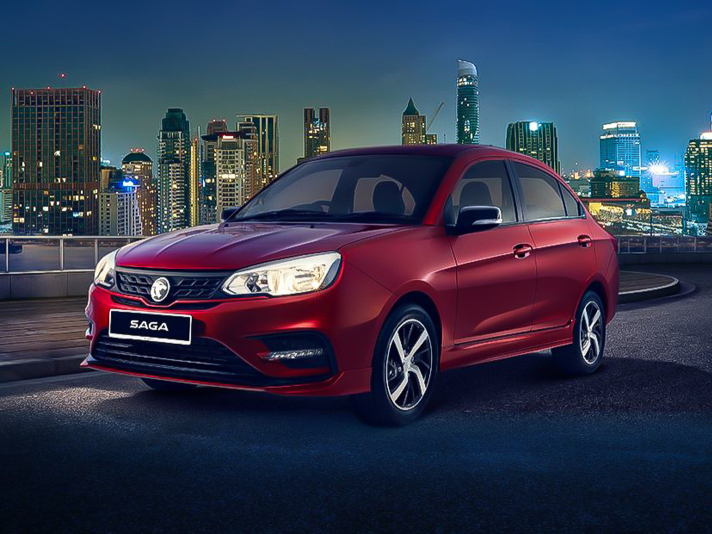
Proton Saga Interior Review: Affordable Yet Stylish for Everyday Use
【PCauto】The Proton Saga has been a household name in Malaysia since 1985. Known for its affordable pricing and reliable performance, it remains a top choice for budget-conscious drivers. As an A-segment sedan, the Proton Saga delivers strong value across key areas like comfort, safety, and everyday practicality. Whether you're commuting to work or heading out with the family, the Proton Saga interior offers just enough space and features to keep things simple and efficient.

Honda Chief Engineer Goes Viral for Hairstyle, Formerly Led EV Dynamic Tuning
【PCauto】With a hairstyle that looks just like a character from a Japanese anime, Honda’s chief engineer Shotaro Odate has caught a lot of attention online. Back in May 2024, Japanese media first picked up on him because of his unusual look. Recently, Shotaro Odate has gone viral again, this time in China, where people are fascinated by his distinctive hairstyle and his role at Honda. With all the buzz, Honda China officially invited him to respond to the growing public interest on social media.
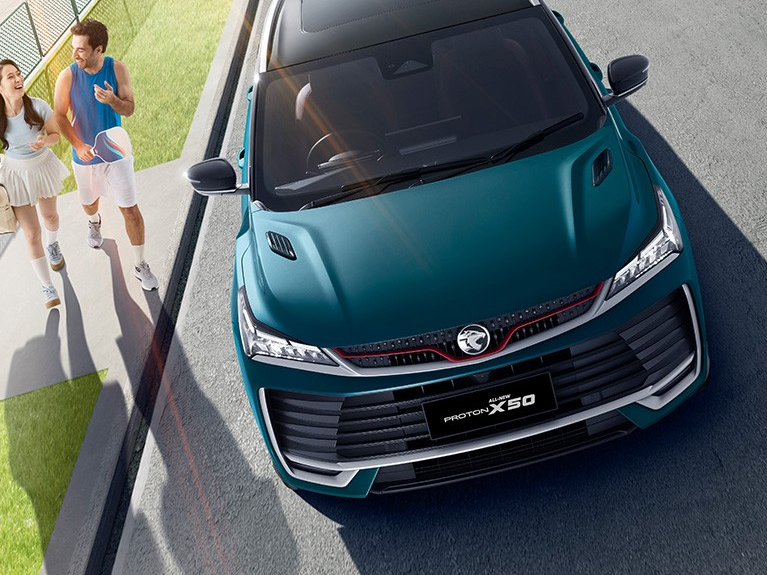
2025 Proton X50 Facelift Debuts with New 1.5L Four-Cylinder, Priced from RM89,800
【PCauto】Proton has officially unveiled the refreshed 2025 X50 compact SUV. The key change is a new 1.5L four-cylinder engine that replaces the previous three-cylinder across the entire lineup.

2026 Toyota Hilux Interior Unveiled, and It’s Giving Prado Vibes
【PCauto】Patent images and spec sheets of the 2026 Toyota Hilux have surfaced online, hinting at a major interior overhaul for the world’s best-selling pickup. While the new Hilux will stick with its proven mechanical platform, Toyota seems ready to shake things up inside the cabin. The refreshed Hilux is expected to hit Southeast Asian showrooms in the first half of 2026.

2025 Proton X50 launched for 5 days and has received 8,000 orders, with 999 units delivered
[PCauto] Malaysian automaker Proton officially launched the brand-new 2025 Proton X50 on July 24, 2025, gaining record-high market traction. This compact SUV achieved a record-breaking delivery of 999 units within just five days.
Popular Cars
Car Compare

